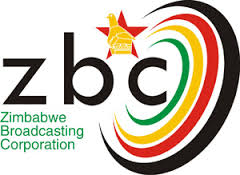Story by Bruce Chahwanda, Political Editor
LIBERATION icon, Cde Herbert Chitepo’s legacy continues to hold firm as the nation was this Monday brought together by what was supposed to be his 100th birthday.
Cde Herbert Chitepo is well known as the first black lawyer and a champion of Africa’s liberation.
The liberation icon could have become a centenarian this Monday, but that was not to be after his assassination in 1975, however, his legacy still lives on with high-profile figures and family members converging in Harare this Monday to celebrate his life.
Dr Thokozile Chitepo, daughter to the late liberation stalwart who is also the Permanent Secretary in the Ministry of Youth, Sport, Arts and Recreation stressed the importance of reflecting on the sacrifices made for the country’s independence.
“Herbert Chitepo loved and died for all Zimbabweans and it is the time for us to recall and celebrate his birth. He was able to envision a future for all Zimbabweans that we are living in today,” she said.
Born into a peasant family, and endowed with a clarity and strength of intellect which he further developed, Chitepo rose to become his country’s first black barrister.
His parents died when he was very young and he was raised by Anglican priests at St Augustine’s Mission School near Mutare. The young Chitepo was a brilliant scholar, always at the top of his class, and he went to South Africa for secondary school and a Bachelor of Arts degree in English from Fort Hare College.
He studied Law in London and was called to the bar at the Middle Temple.
He combined his legal base with nationalist political work and was a founder member of the National Democratic Party in 1960.
After the NDP was banned, he was a founder member of the Zimbabwe African People’s Union in 1962, and one of those who broke away in August 1963 to form the Zimbabwe African National Union.
He was instrumental in the decision of the Liberation Committee of the Organisation of African Unity, based in Dar es Salaam, to recognise Zanu as well as Zapu. At Zanu’s first congress in Gweru in 1964, he was elected in absentia as National Chairman.
He was Zanu’s most senior leader at liberty and under his guidance the party shaped its military wing, the Zimbabwe African National Liberation Army, under the command of Josiah Tongogara.
April 28, 1966 marked the start of the armed struggle when seven armed guerrillas died in combat with Rhodesian troops in the Battle of Sinoia (Chinhoyi).
This was the first organised act of armed insurrection since the First Chimurenga of the 1890s following the settler occupation of the land.




